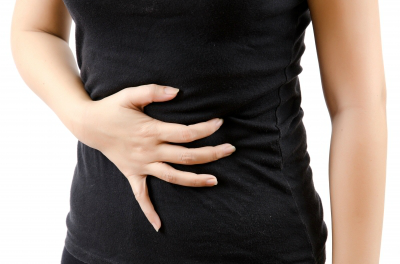Eating Hygiene (Part 1 of 2)
While eating dinner with the family on a recent night, my husband looks over at me and says; “Hey honey, would you like me to put that in the blender for you?!”
Apparently, I was wolfing down my food and not walking my talk about the importance of slowing down and putting my body in a place of absorbing the good food I was putting into my body.
You might wonder, why is this important?
In the world of nutrition, there is so much talk about WHAT we eat but not a whole lot about HOW we eat.
You may have heard the saying, ‘You are what you eat’, but that is incorrect. One of the many things I hear over and over again during my studies at The School of Applied Functional medicine is, ‘You are what you ABSORB’. And the first thing that determines nutrient absorption is HOW we eat. The body needs lots of nutrients in order to function properly and we simply don’t have a pantry of them in our left butt cheek! We must get what we need by absorbing the nutrients from the food (and supplements) we put into our body.
In addition, if we experience bloating, gas, belching, and mild acid reflux, the first step is to address how we eat, AKA “Eating Hygiene”.
I want to share some of my most helpful tips (yes, that I’m working on too), and I hope you will incorporate them into your daily life to help maximize your nutrient absorption as well as begin to alleviate mild GI frustrations. Don’t be fooled by how simple these ideas seem at first; they are powerful!
1. Slow Down.
Yes, we know: it’s easier said than done at times. Especially if you were raised in a big family and couldn’t have seconds (or dessert) until you practically inhaled what was on your plate. But digestion takes time. And digestive secretions such as stomach acid, bile, and pancreatic enzymes need time to be fully secreted. If we’re stressed, it takes even longer!
If you wolf down your meal in a hurry, a very full stomach has trouble mixing acid and enzymes well with your food. All on its own, this dynamic creates indigestion. Think of trying to blend a batch of stir-fry in a coffee cup. There’s simply not enough room. When it “spills over”, you belch and burp and may have reflux.
It also takes about 20 minutes for your gut to send the signal to your brain that you’re full and reduce your sense of hunger. Do you gulp down your food in 10 minutes? You’re much more likely to overeat and end up feeling bloating 20 minutes later.
Tip for building this habit:
Get in the routine of putting down your knife and fork and sitting back in your chair in between each bite of food. Heck, spice it up and have a little conversation without food in your mouth! After you swallow, take at least one full, cleansing breath before you pick up your utensils and enjoy another bite.
2. Chew
Believe it or not, on average we chew a bite of food only six times before we swallow (gulp!). Chewing is the only part of the digestive process that we can control.
The less we chew our food, the harder our GI tract has to work to digest it. This creates post-meal fatigue. Ideally, we chew our food until it’s almost liquid before swallowing. This can reduce gas and increase post-meal energy.
When we swallow chunks of food (vs. tiny, mostly liquefied bits), it’s harder for digestive enzymes in the intestines to do their job. And when carbohydrate foods hang around in the stomach too long, the bacteria in our gut feast too heartily and create gas build-up as a metabolic byproduct. The result? Distention, bloating, flatulence. (Hint: if you chew thoroughly, it’s also much easier to slow down.)
Tip for building this habit:
Count your chews. Literally. Chew every bite 20-30 times, except perhaps soups and other delicate foods. Again, we ideally chew food until its liquid. If you feel a strong impetus to swallow beforehand, just move the food to the side of your mouth, swallow saliva, and keep chewing (think of what you automatically do with gum).
Take the next few days and incorporate these two habits into your daily routine. How does it made you feel? What do you notice about how your food tastes?
Next week I’ll share two more tips for improving your digestion.


Eli
March 13, 2018 at 5:32 pmLinda, I know you are also a big fan of meditation. CHEWING is a great thing to meditate on… talk about a challenge to stay in the present moment!
Linda
March 21, 2018 at 4:36 pmYes, a challenge indeed, Eli! But hey, it’s a two for one to chew mindfully. Who doesn’t want efficiency.
Mary
March 14, 2018 at 1:43 amI had no idea HOW we eat was so important. Thanks for the insight!
Linda
March 21, 2018 at 4:37 pmYou are welcome Mary! Glad I can continue to add to your wellness routines.
Pingback:Eating Hygiene (Part 2 of 2) - Simple Well Being
March 21, 2018 at 6:05 pmVanessa Prada de Richey
March 24, 2018 at 10:18 pmMy mom always feels terrible because she takes a long time to eat. She will be happy to hear this and I will try it myself